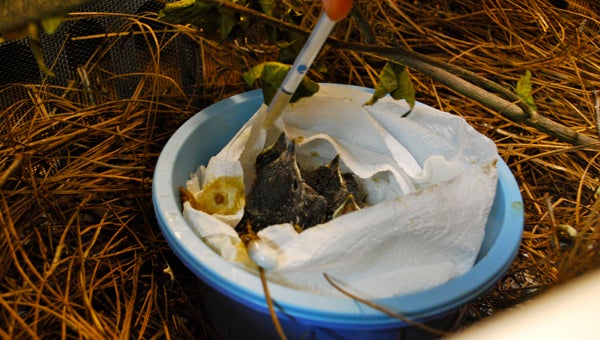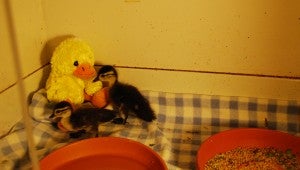AWC welcomes babies with annual Baby Bird Shower
Published 12:20 pm Friday, May 15, 2015

The Alabama Wildlife Center cares for hundreds of baby birds throughout baby bird season, which lasts from April to October. (Reporter Photo / Molly Davidson)
By MOLLY DAVIDSON / Staff Writer
PELHAM—The Alabama Wildlife Center is currently in the midst of baby bird season, the busiest season of the year. From April to October, the AWC cares for hundreds of abandoned, orphaned and injured baby birds, and you can help.

These orphaned ducklings are just two of the more than 100 baby bird patients at the AWC. (Reporter Photo / Molly Davidson)
On May 30, from 11 a.m. to 2 p.m., the AWC is holding the annual Baby Bird Shower. Stop by to tour the nursery and aviaries, enjoy cake and refreshments and make crafts.
The AWC’s education ambassadors—Natchez, a Mississippi kite; Coosa, a barred owl; Legacy, an American kestrel; and Arthur, a merlin—will also make an appearance during the event.
“It’s a great opportunity for folks to come to the Wildlife Center to see the babies that we’re taking care of,” AWC Executive Director Doug Adair said. “It’s just a fun afternoon for the whole family.”
Guests are invited to bring a gift for the baby birds, including fresh produce such as strawberries and blueberries, paper towels and bird seed, to name a few. A full baby bird wish list can be found online at Awrc.org/Baby%20Bird%20Shower.
“Because of the huge number of birds we are taking care of, it puts a huge strain on our financial resources,” Adair said.
Last year, the AWC cared for a record number of baby birds, topping 1,000 throughout the season, and this year is on track to be the same, Adair said. Donations allow the AWC to provide the best care and treatment for the baby birds, and make an immediate impact.
“We depend on the extra giving of our supporters,” Adair said. “It makes a real difference in our ability to take care of these birds.”









